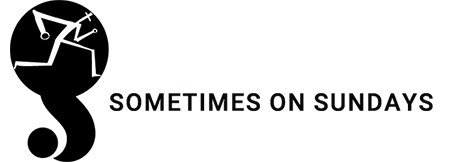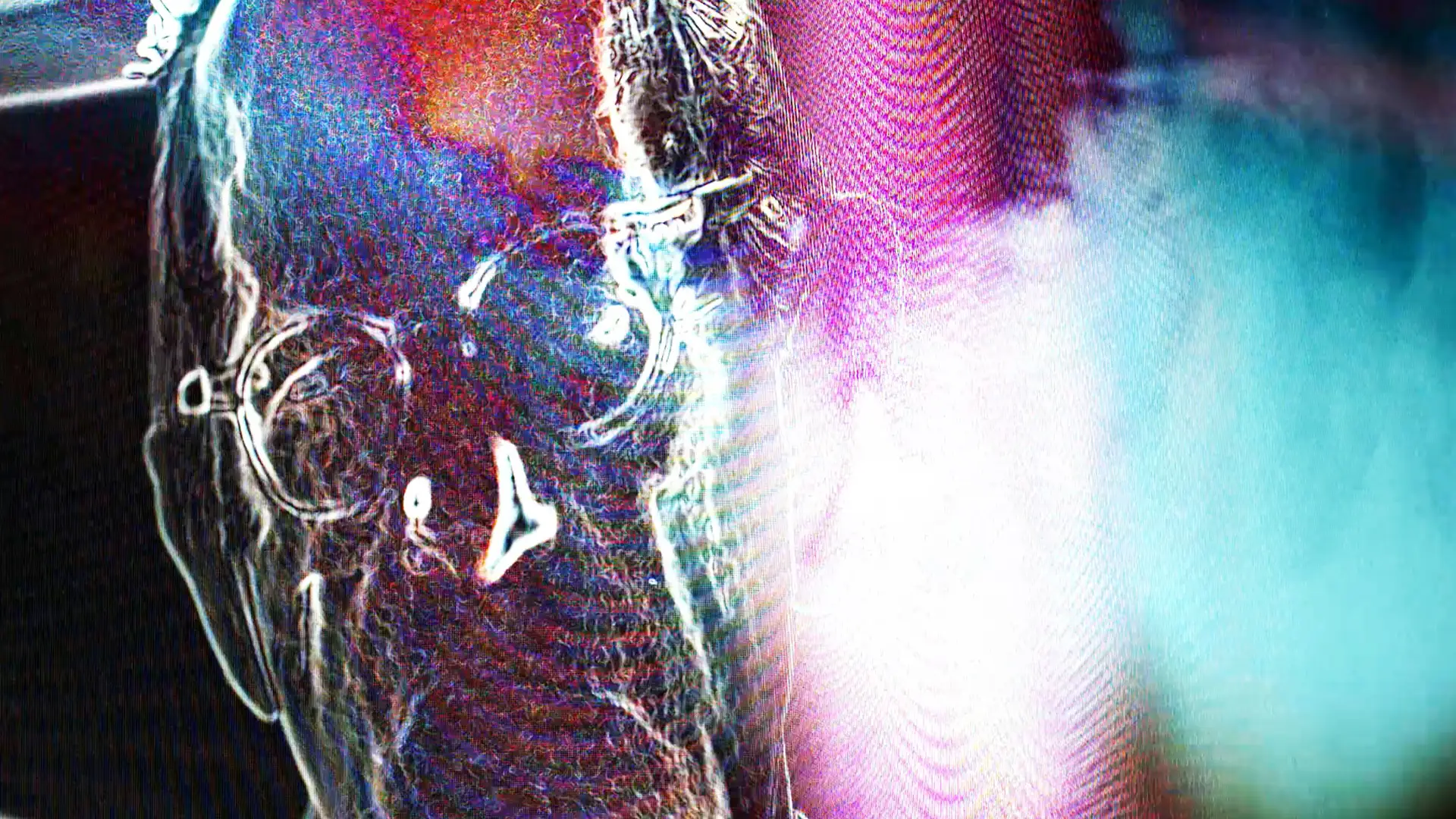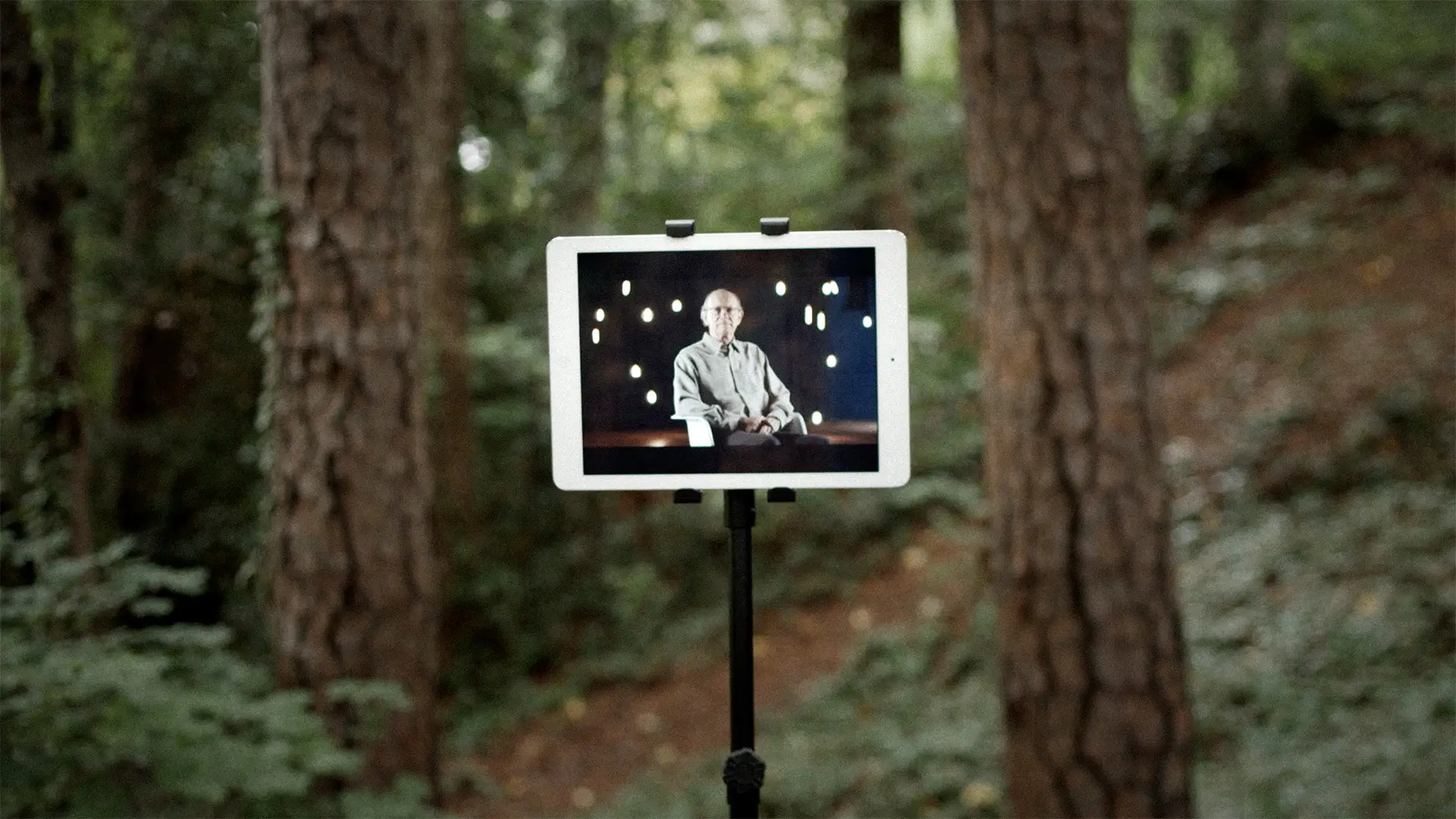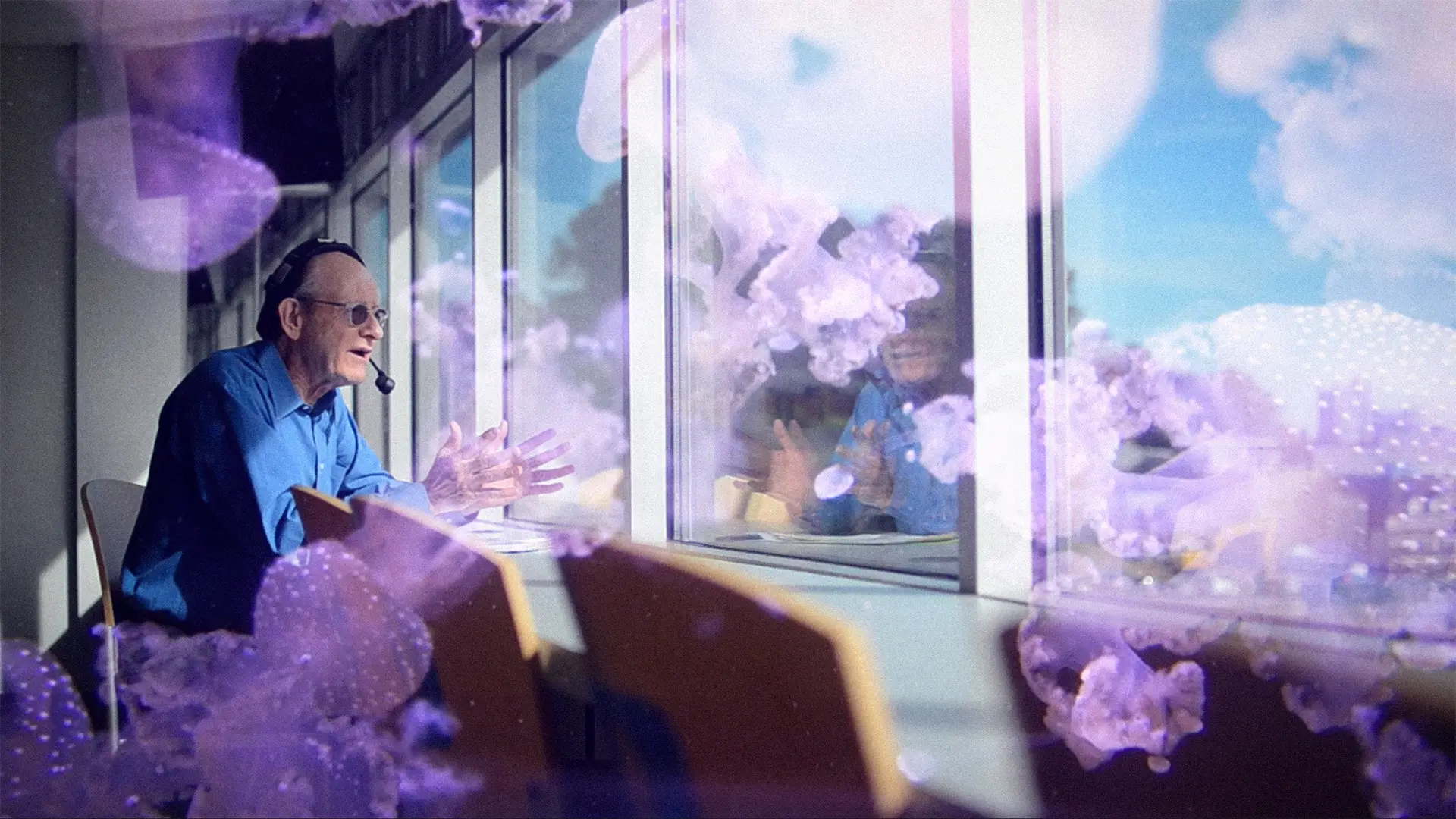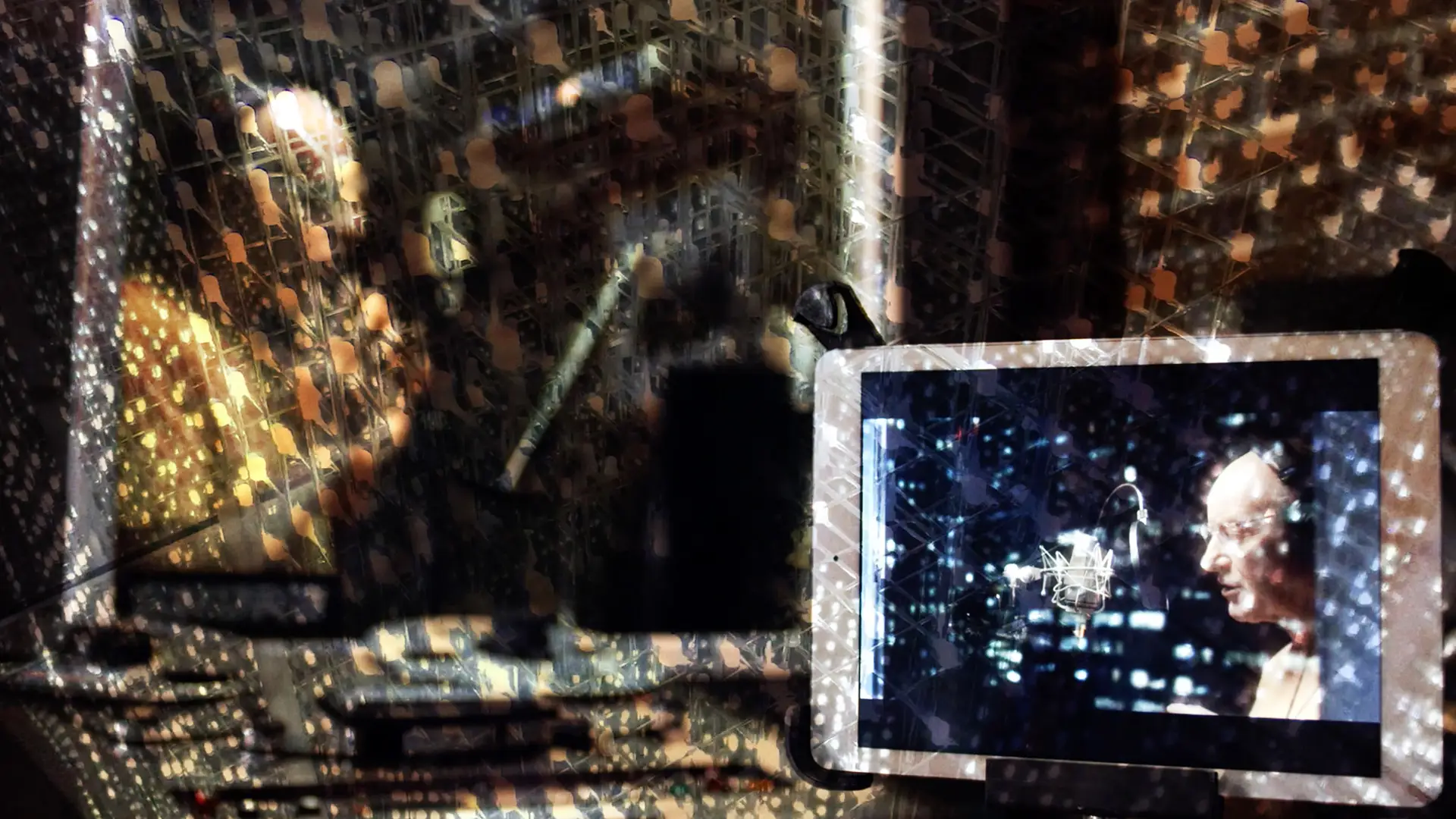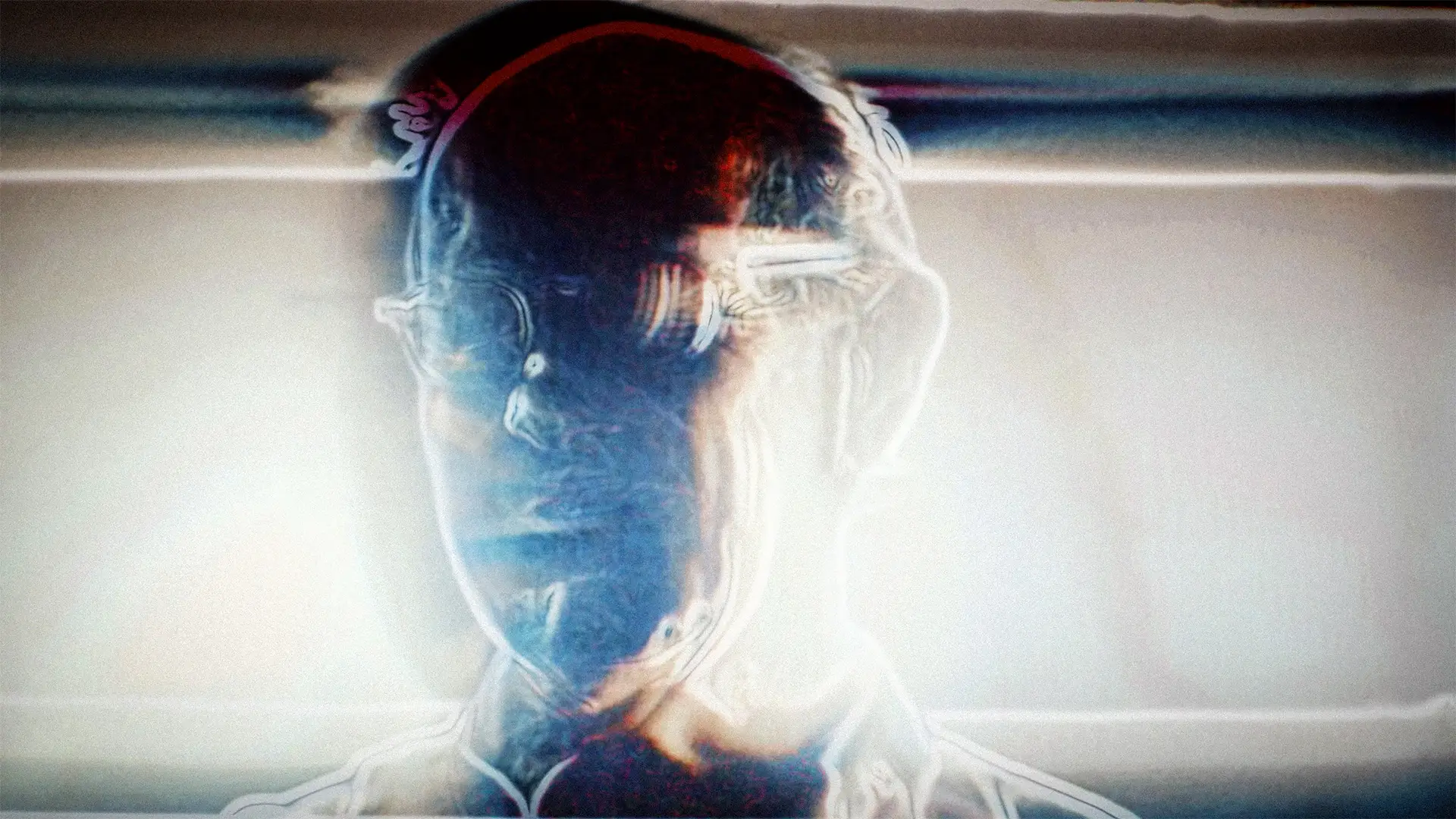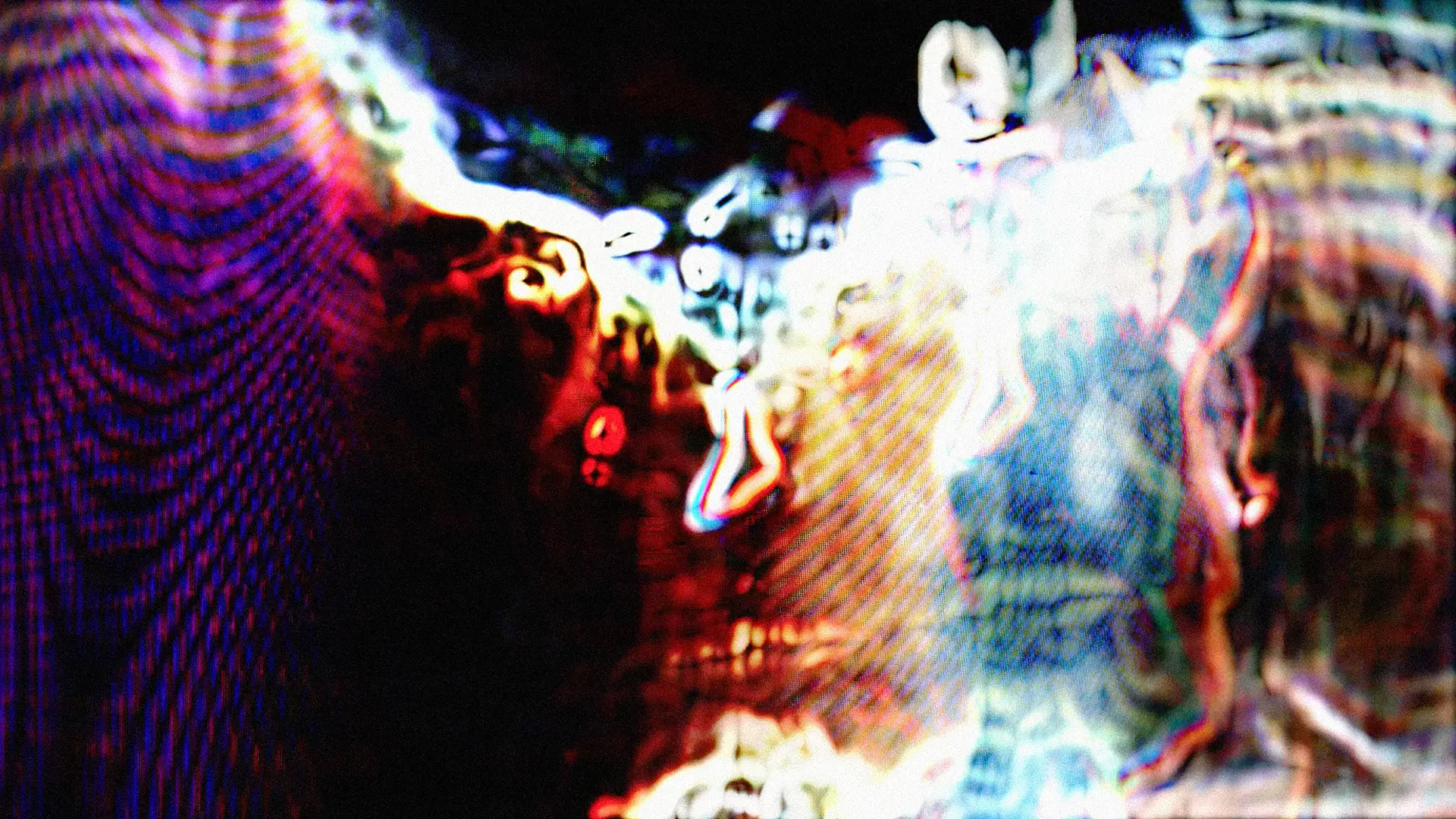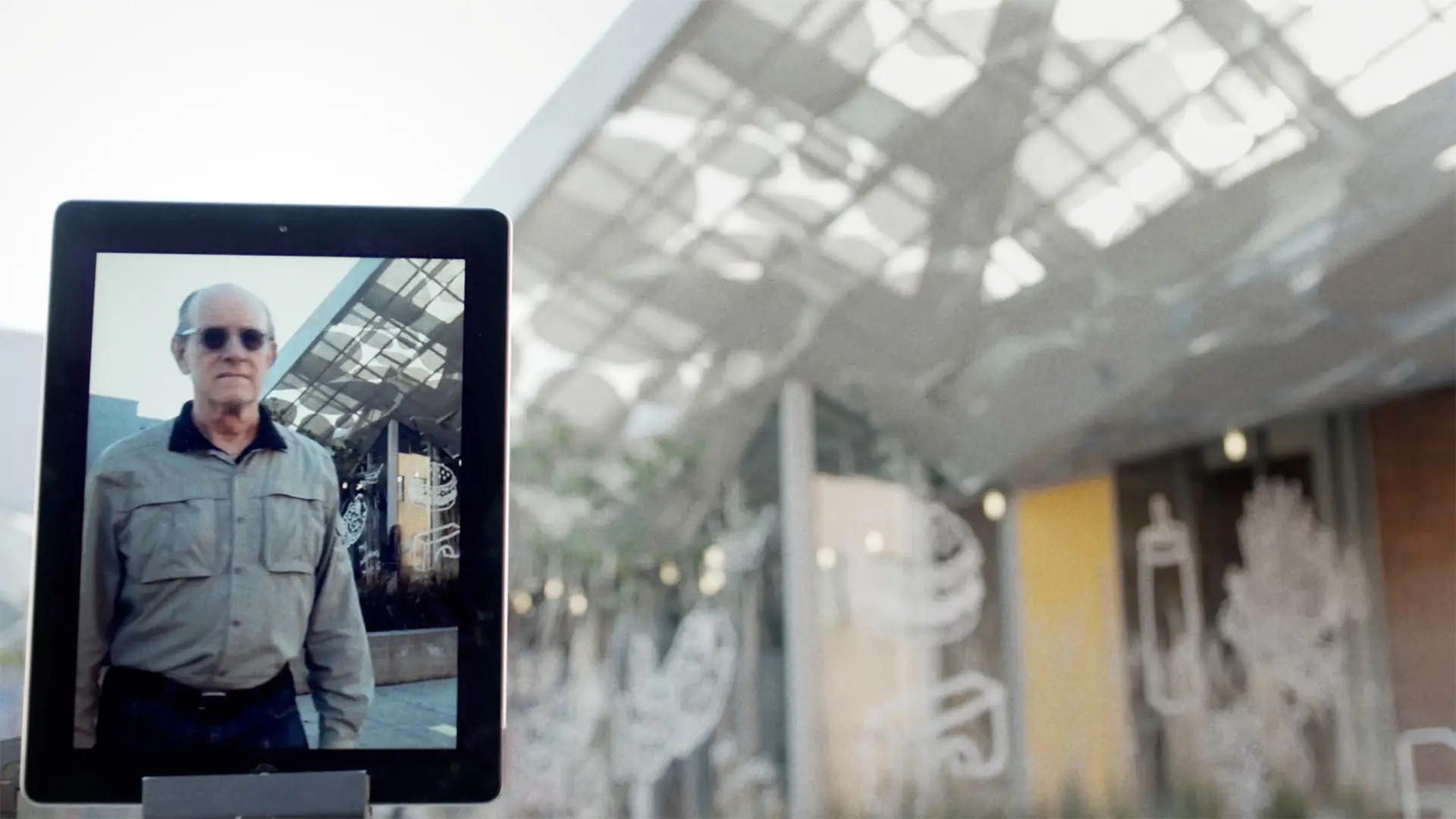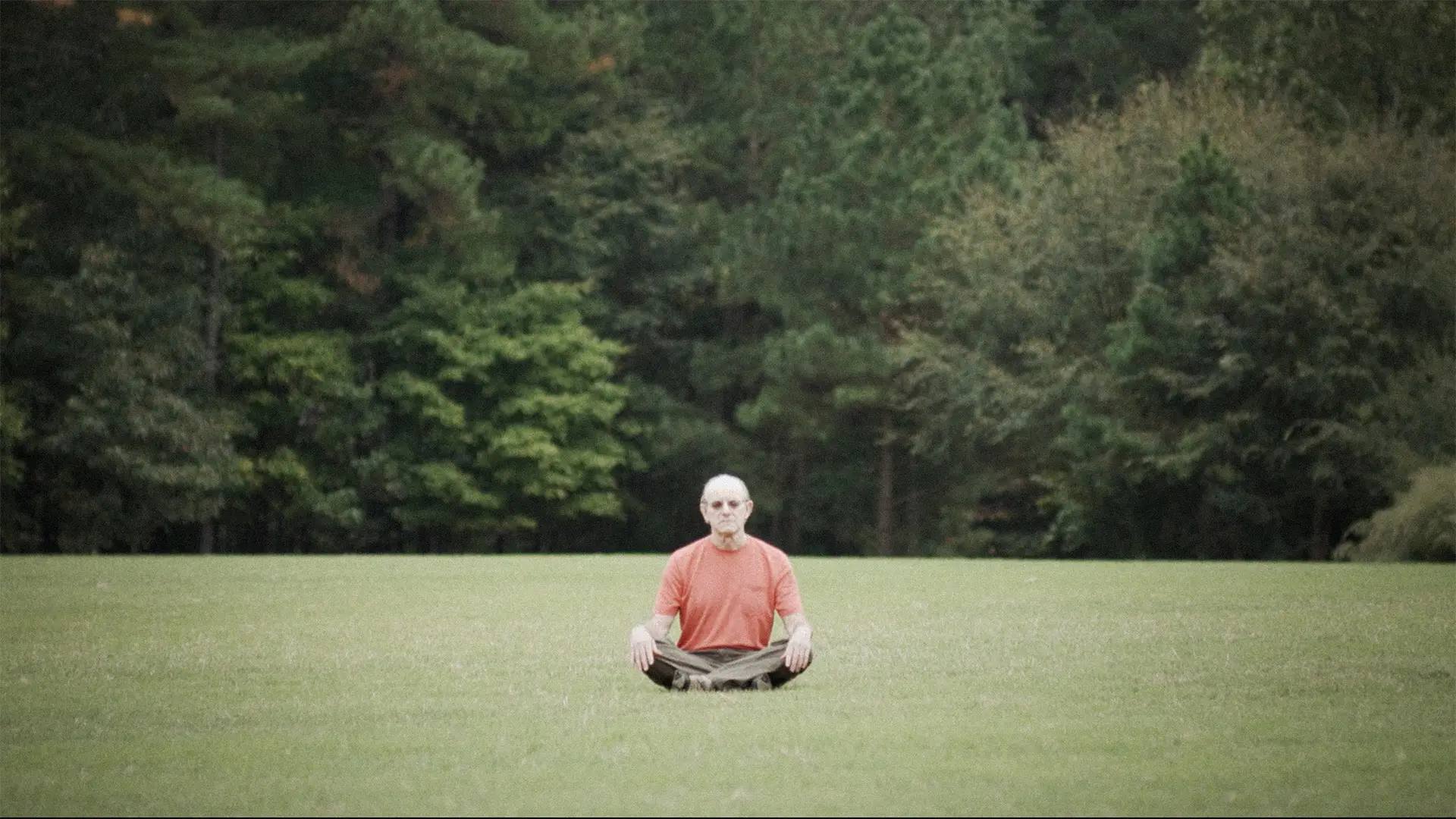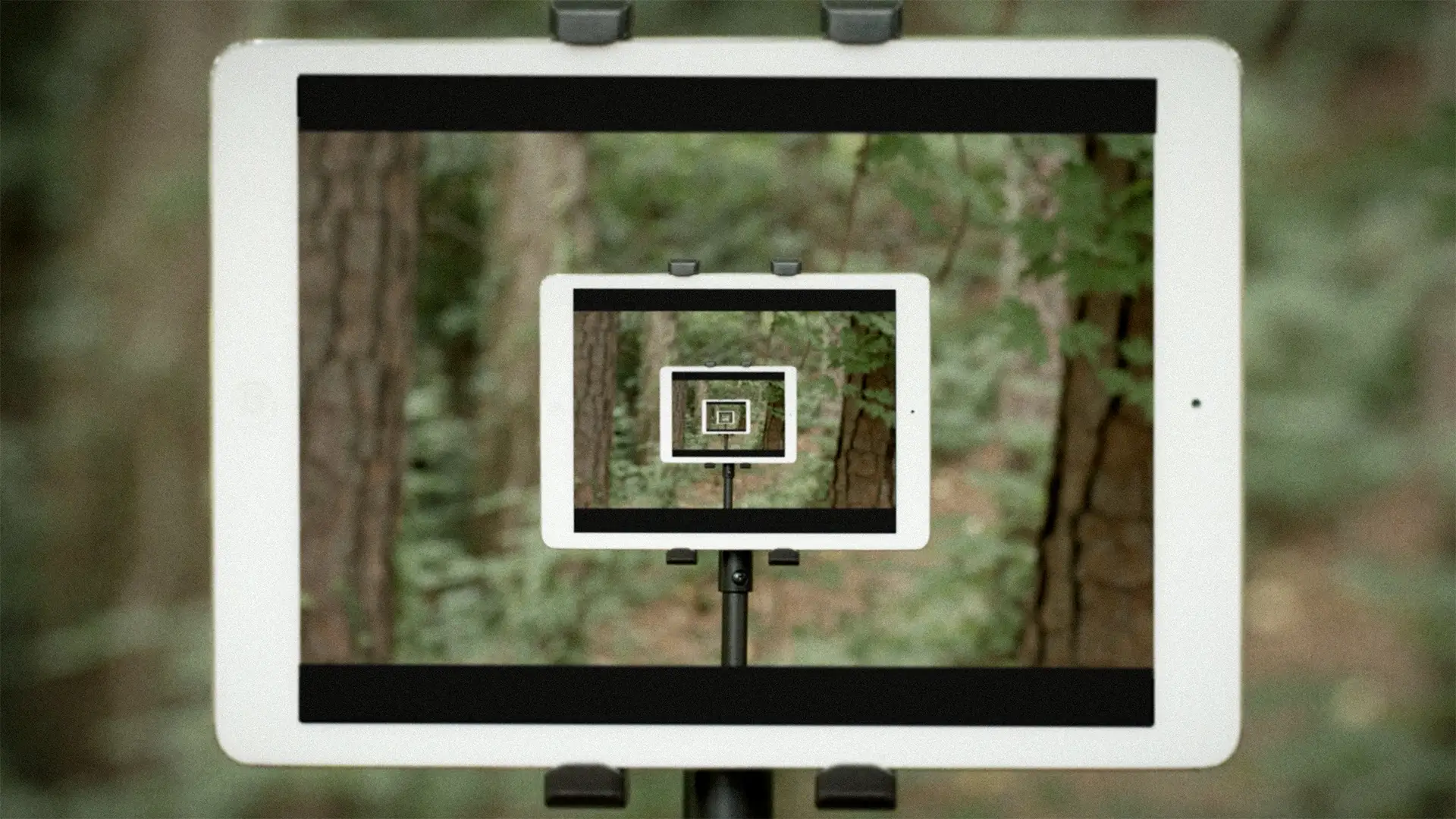2018 . 12 minutes 44 seconds . Digital
On the road to spiritual transcendence, a voice over artist gets lost in the forest. He makes some commercials along the way.
“Poetic, exploratory, and deeply resonant, it stands as a testament to the enduring power of experimental cinema to inspire introspection and provoke meaningful discourse.”
Short Films Matter
CREW
David Baeumler – Writer, Director, Camera, Editor, Music
Kevin Silva – Writer
SELECT SCREENINGS (2019)
Humboldt International Film Festival – Arcata, CA (Award: Best Experimental)
ABQ Indie Film Festival – Albuquerque, NM (Award: Best Experimental)
Oaxaca Film Festival – Oaxaca, Mexico (Finalist, Best Experimental)
The Fine Arts Film Festival – Venice, CA
Berlin Motion Picture Festival – Berlin, Germany
Berlin Illambra Independent Film Festival – Berlin, Germany
Carrboro Film Festival – Carrboro, NC
Longleaf Film Festival – Raleigh, NC
Rolling Ideas Festival – Prishtina, Kosovo
Motion for Pictures Festival – Cary, NC
Short to the Point Festival – Online
REVIEWS
David Baeumler’s experimental short delves into a network of themes, from the esoteric concepts of Gnosticism to the poignant juxtaposition of humanity’s constructed reality against the backdrop of the natural world. At its core, the film serves as a meditation on the pervasive nature of distraction in contemporary society, artfully woven through the narrative lens of a voice-over artist, portrayed with nuanced depth by Kevin Silva.
Through deliberate interruptions and seamless transitions between the artist’s narration and his real-world distractions, Baeumler masterfully captures the essence of our fragmented attention spans, echoing the cacophony of modern existence. The artist’s perpetual quest for connection with the natural world serves as a poignant metaphor for humanity’s yearning for spiritual transcendence amidst the chaos of everyday life.
Likely drawing from his personal experiences and philosophical musings, Baeumler crafts a profoundly introspective journey that invites audiences to contemplate their place within the broader tapestry of existence. The film’s multifaceted narrative invites interpretation and introspection, inviting viewers to confront their own perceptions of identity, purpose, and interconnectedness.
Visually arresting and thematically rich, the film seamlessly integrates the ethereal beauty of nature with the mundane trappings of human existence, blurring the boundaries between the physical and metaphysical realms. From the intimate confines of an audio booth to the expansive vistas of the natural world, the voice-over artist’s journey serves as a poignant reminder of humanity’s inherent insignificance within the vast expanse of the cosmos.
Baeumler’s short film is an exploration of the human condition, offering a profound and thought-provoking examination of the inherent tensions between nature and civilization, distraction and transcendence. Poetic, exploratory, and deeply resonant, it stands as a testament to the enduring power of experimental cinema to inspire introspection and provoke meaningful discourse.
FilmInt. – September, 2020 – David Finkelstein
The Distraction Towers is a rich, complex, and fascinating short essay film by David Baeumler. The film is narrated by Kevin Silva, who plays a professional voice-over artist with a decidedly philosophical bent. In the opening sequence, Silva speaks about planning a trip of aimless wandering, wanting to enjoy remote natural places for their own sake. He plans to diligently pursue his Zen goal of goallessness. His authoritative voice sells the idea of meditative walking, sounding like the narrator in an ad for an expensive, cultish retreat center, while the camera floats serenely backwards from close-up shots of leaves and flowers, in gorgeous, saturated colors. But something strange keeps interfering with the serenity: blips of overlaid screen text and electronic noise keep popping into the frame, as if our experience of being immersed in nature is being cataloged and stored in a remote database.
The various levels of narrative reality presented in the film are quite complex. In the film’s first shots, we are alone in nature. Then we see footage of Silva, giving a talk about Gnostic philosophy, but we’re watching him on an iPad which is set up on a tripod in the woods. And we’re not just watching his actual talk, but also the outtake moments before and after the taping of his talk, when he’s adjusting his mic and his clothing. Meanwhile, these images are still being continually disrupted by the electronic blips and subliminal text with computer graphics.
By including those awkward moments where Silva is preparing to give his spiel, Baeumler reveals that Silva’s ability to present a polished, smooth presentation of his ideas is the result of considerable artifice. A film editor would normally cut out all these moments of Silva clearing his throat, in order to present the narration with a feeling of intellectual clarity and authority. Infomercial editors generally prefer to take out all the stray remarks and body adjustments which make up the texture of actual daily life. Silva’s message is that the Gnostics saw the messiness of the physical world as an enemy, but Baeumler continually allows this messiness to interrupt his message. Meanwhile, the computerized overlaid graphics keep pushing the physical reality even further away, compressing ideas into pure electronic code.
The film’s editing style, which consists entirely of interruptions, is itself interrupted, by a hilarious mock drug ad for something called Zabrinor, a psychoactive agent with a sketchily outlined purpose of making you feel that “things aren’t that bad.” Evidently, recording the narration for this ad is one of Silva’s bread-and-butter voice-over gigs, but it also serves as another witty example of how technology is being sold to us as a way of shielding ourselves from the terror of experiencing our own feelings. The ad’s pitch describes the typical Zabrinor customer as someone who would “love to get outside, but inside is ok for now,” and we hear these words while watching the ad on the iPad out in the woods. Watching the Nature Channel on a screen is so much safer and more comfortable than confronting actual wildness.
Ominously, Silva’s text for the ad runs out in mid-sentence, just before we find out the ostensible purpose of the pill. He walks out of the sound booth, looking around for the end of the ad copy, but the recording studio is deserted. The hollowness of the drug pitch bleeds into the larger hollowness of our technologically-cushioned lifestyles.
As the film continues, every story is interrupted, every thought is derailed, and every image is undermined. As we get used to this style, these interruptions, which at first appear to be distractions, become the main point. The film’s underlying philosophy slowly becomes apparent. Silva keeps pursuing his goal of immersing himself in an immediate sensory experience of the natural world, but his every attempt to “sell” this idea, whether to others or to himself, ends up turning into something like a YouTube video about the joys of meditation. We live in a vast, beautiful and terrifying universe, which is not in any way centered on us and our individual needs, and so the connectedness we feel through our sensory experiences serves to pull us out of our egos. At the same time, however, our minds continually convert every experience into language and ideas, which take us away from a direct experience of reality, and there seems to be no way to turn off this non-stop distancing device.
Silva recalls his childhood, and a pesky younger brother who always knocked down whatever Silva was trying to build with blocks. He describes how he took to building “distraction towers,” so his brother would go after a decoy tower, and leave him alone with his “real project.” But he ends up putting more energy into these decoy towers than into the structure he is trying to protect.
Since this story is told while we see images of Silva meditating in a field (still shown on the iPad), it reminded me of the relationship which forms, during meditation, between one’s verbal, intellectual mind, and the quiet inner awareness which is the intended focus. You can try to give your mind a task, such as counting your breaths or keeping your spine straight, to give it something to do, and thus allow your awareness to float away from the chatter and into the silence. But frequently, the effort to distract the mind becomes a distraction, in and of itself. Have you ever tried to meditate, and found yourself talking to yourself about the process of meditating, instead of simply being in the moment?
The Distraction Towers is a deliberately over-burdened narrative, a verbal, philosophical argument that is interrupted and overlaid with so many layers that it is designed to tumble. As an essay, it argues against the validity of the essay form as a way of expressing truth. It espouses the Buddhist notion that all separateness is an illusion, masking the underlying oneness of experience.
Viewed this way, our technologically obsessed age presents no fundamentally new problems of consciousness, but it takes the old human tendency to mistake the map for the territory, and puts it on steroids. For young digital natives, the reduction of feelings and experiences into symbols which can be squeezed into an Instagram post is reality. Sometimes it seems that, to younger people, there is no such thing as inner reality at all. They live in a world of styles, symbols and surfaces. To an old fogey like me, this is terrifying.
Silva, too, is clearly no youngster, and so it comes as no surprise when he responds to the alienation of our time with the hippyish idea of packing up his djembe and heading out to the woods to commune with nature. But with the fragmented, complicated narrative structure of this film, Baeumler effectively shows us that the age of returning to Walden Pond has passed for good. Even if Silva doesn’t bring his iPad with him, he won’t be able to escape the urge to Google every flower and mushroom he sees.
Berlin Illambra Experimental Film Festival Review – December 15, 2019
First, the Recap:
Diversion. It can be a blessing or a curse. One one hand, it can provide a much-needed escape from the monotony, mundaneness, or frustratingly mind-numbing instances we find ourselves in at times. On the other hand, however, it can also be a highly unnerving detriment to accomplishing that which we’ve set out to do when our focus gets waylaid by things that mean to do nothing but, well, divert us. For a particular voice-over artist (Kevin Silva), it has certainly become a statement about the latter, even as he maintains his attempts to get around to becoming spiritually transcended, things just seem to keep getting in his way, including getting lost in a local forest. Yet, what else does one do when everything around you is falling apart and preventing your expounding on and gaining entrance into divine bliss? You make commercials!
Next, my Mind:
From the start of its just under 13-minute runtime to the very purposefully open-ended finale, this inventive, wholly original, and ultimately madcap adventure of a film brought about by writer/director/producer David Baeumler and writer/actor Kevin Silva demands attention for its utterly offbeat, entertaining weirdness, kooky humor, and yet life-lesson-infused narrative that speaks to our human nature and the preoccupation we have with being–preoccupied! Screened at the 2nd Annual 2019 Berlin Illambra Experimental Film Festival hosted by Illambra and presented at the Salon AM Moritzplatz, it is a story replete with non-sequiturs and random concepts all wrapped into what sometimes feels like a playfully disjointed documentary feature on Gnostics intermixed with the effort’s central character waxing philosophic on overall desire for sacred ascendency that then gets interrupted by equally bizarre circumstances that throw him for a loop before trying to regain focus and composure.
Hence, just like the character, it’s a lesson in how we so often begin a task, but then something comes along to either destroy it or deter it from being completed. Therefore, we then end up manufacturing other means by which to divert the catalyst for chaos away from our objective–until we then get caught up in the exactly that which was supposed to aid us maintaining our aims, becoming a new obsession. Sounds convoluted perhaps, but it honestly makes so much sense, even bringing to mind actual experiences of this happening, and that’s the magic of the film. Of course, there are also the sudden interjections of commercials the lead character decides to create for products and medical conditions that are just as outrageous and outlandish as the rest of his endeavors, only adding to the atmosphere of frenetic insanity and intentional confusion that brings the laughter from us, the witnesses of said craziness. Basically, everything becomes the film’s namesake by the end.
The visual impact of the film is, like so many of the films at BIEFF, wildly eccentric and yet totally artistically astute, presenting here imagery that is at one time crystal clear, then other times a haze of random forms of interference-based pictures that more than suitably befit the film’s intents. Silva is a total riot here in his role as the hapless voice-over artist whose life is consistently upended by anything and everything around him that thwarts his efforts to do the piece on Gnostics while also managing to be an ad-man for some truly strange products. The character’s ponderings about spirit over body, “death is purpose, decay is hope”, “transcendence is pointless”, et al is quite witty as it is delivered with such a deadpan, matter-of-fact manner by Silva throughout, making it even funnier because of the growing level of absurdity it represents in seeking something that even resembles relevant meaning. It’s farcical comedic folly at its amusingly wry best, at least for this critic it was, and Silva performs this with beautifully controlled poise.
In total, with an actual, legitimate point to be made when it comes to illustrating our stubborn human proclivity to allow so much to cause us to lose sight of and focus on what’s important, “The Distraction Tower” stands tall as an ambitious little indie film that could, being yet another portrait of adept alternative filmmaking that deserves a shot to shine in the sun-drenched vistas of Hawaii, surrounding yourself with the wondrous adventures the ocean, valleys, mountains, and lava-strewn landscapes have to offer! Book your excursion now at–OH! I must apologize profusely for straying from my original thoughts above. I got distracted.
